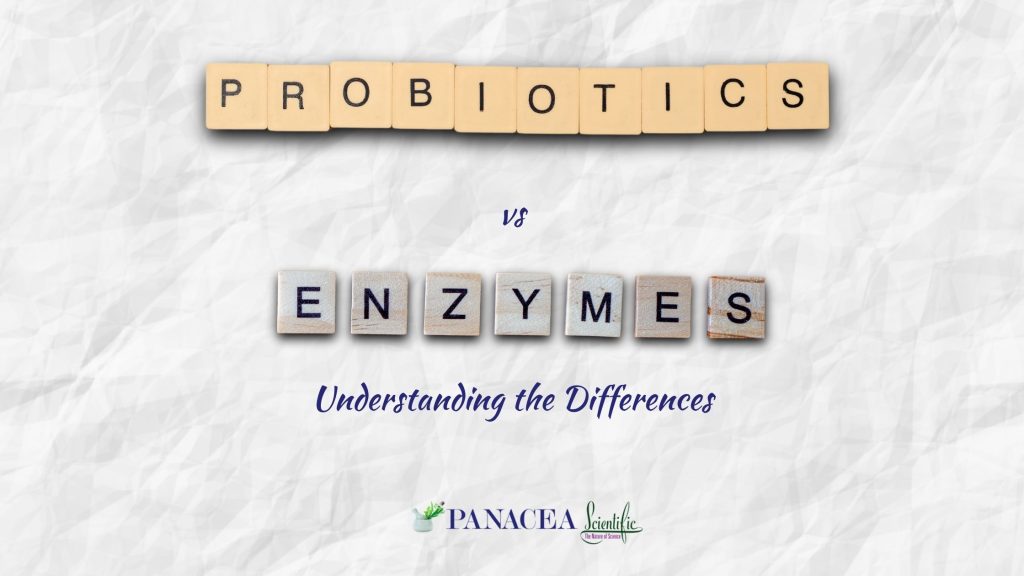
Music and Probiotics: A Harmonious Blend for Health
The harmonization of music and probiotics holds tremendous promise in promoting holistic wellness. Together, they create a comprehensive approach that nurtures the mind and body.

As awareness grows regarding the significance of gut health and digestion, the confusion between probiotics and enzymes has become increasingly common. Here, we’ll delve into the world of probiotics and enzymes, exploring their unique functions and benefits to help you better understand how they can support your overall well-being.
Probiotics are live bacteria and yeasts that are beneficial for our digestive system. They are often referred to as “good” or “friendly” bacteria because they help maintain a healthy balance of microorganisms in the gut. Probiotics can be found in fermented foods like yogurt, kefir, sauerkraut, and kimchi, as well as in dietary supplements.
The main function of probiotics is to promote a healthy gut flora, which is essential for digestion, nutrient absorption, and immune function. They help prevent the growth of harmful bacteria in the gut, reduce inflammation, and improve the overall health of the intestinal tract. Research has shown that probiotics can also help with various digestive issues such as irritable bowel syndrome (IBS), bloating, diarrhea and unexplained gas and cramping.
With today’s fast-paced lifestyles, it can be difficult to get the correct quantity of probiotics in your diet. Supplements can be a great addition to your daily routine to help make sure you’re giving your body the recommended daily dose it needs. One supplement to consider is Panacea Scientific’s Evvea. Evvea effectively supports digestive tract health, and is also recommended for people with IBS, Small Intestine Bacterial Overgrowth (SIBO), Clostridium Difficile (c-Dif), Inflammatory Bowel Disease (IBD), Chronic Bloating, Functional Constipation, Lactose Intolerance and Unexplained Gas.
Enzymes are proteins that act as catalysts in chemical reactions, including those involved in breaking down food into nutrients that our bodies can absorb. There are three main types of enzymes. Amylase break down carbohydrates into sugars, Protease break down proteins into amino acids, and Lipase break down fats into fatty acids and glycerol.
Our bodies naturally produce enzymes to aid in digestion, but sometimes we may not produce enough or may have difficulty digesting certain foods. This is where enzyme supplements can be beneficial. Taking enzyme supplements with meals can help enhance the digestion and absorption of nutrients, reduce bloating and gas, and alleviate digestive discomfort. Panacea Scientific’s Multi is a vegetarian multi-vitamin/mineral/anti-oxidant/enzyme/amino acid formula with a full spectrum of nutrients.
Function: Probiotics support gut health by promoting a healthy balance of bacteria in the gut, while enzymes assist in the digestion and absorption of nutrients from food.
Source: Probiotics are live bacteria and yeasts found in certain foods and supplements, while enzymes are proteins that can be found in certain raw foods or taken as supplements.
Benefits: Probiotics help improve gut health, boost immune function, and aid in digestion, while enzymes enhance the breakdown of food, improve nutrient absorption, and alleviate digestive issues.
Probiotics and enzymes both play essential roles in supporting our digestive health and overall well-being. Incorporating both probiotics and enzymes into your daily routine can help optimize your digestive system and promote a healthier gut. Panacea Scientific offers a range of high-quality, natural supplements for holistic health. Contact us to learn more about the best supplement choices for you.

The harmonization of music and probiotics holds tremendous promise in promoting holistic wellness. Together, they create a comprehensive approach that nurtures the mind and body.

You know that you should add a probiotic to your daily supplement routine, but you may bewondering how long does it take for probiotics to

Glucose, also known as blood sugar, is essential for our survival. It’s our body’s main source of energy. However, high blood sugar levels can lead

Payment types accepted:
Visa/MC/Discover/ American Express
© Copyright Panacea Scientific 2020. All rights reserved. | Website by Infinite Web Designs